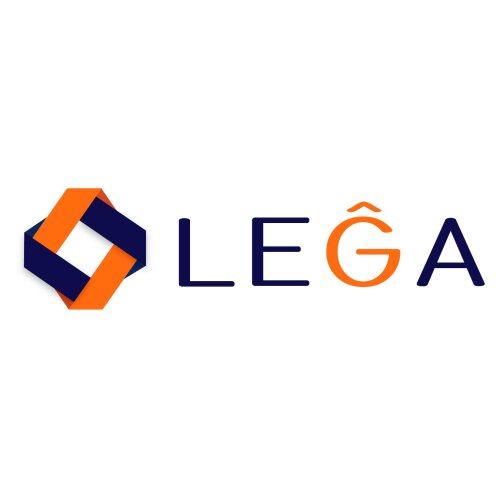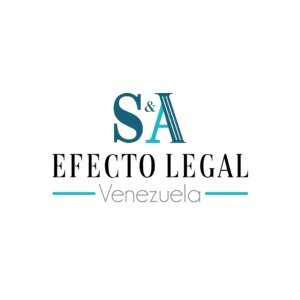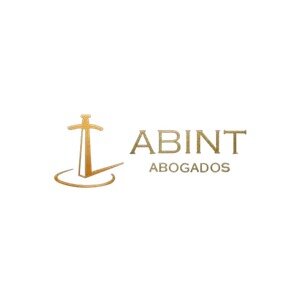Best Energy Regulatory Law Lawyers in Venezuela
Share your needs with us, get contacted by law firms.
Free. Takes 2 min.
Or refine your search by selecting a city:
List of the best lawyers in Venezuela
About Energy Regulatory Law in Venezuela
Energy Regulatory Law in Venezuela governs the production, distribution, commercialization, and consumption of energy resources, focusing mainly on oil, gas, electricity, and renewable sources. Due to Venezuela's status as an energy-rich country, these laws are highly significant and are closely linked to the nation's economic, social, and political frameworks. The laws outline the roles of state-owned enterprises, foreign investors, and private parties within the sector. They also regulate environmental protection, pricing, tariffs, and international agreements relating to energy.
Why You May Need a Lawyer
Legal assistance can be essential for navigating the complex regulatory landscape of energy in Venezuela. Common situations requiring legal help include:
- Negotiating and drafting contracts with government bodies or state-owned enterprises for oil, gas, or electricity projects
- Securing permits and licenses needed for energy operations
- Resolving disputes over tariffs, royalties, or environmental issues
- Ensuring compliance with local and international regulations and standards
- Advising on foreign investment frameworks and joint ventures
- Handling matters related to expropriation or nationalization of assets
- Mitigating risks associated with sanctions or economic restrictions
- Interpreting constantly evolving laws and decrees issued by the Venezuelan government
Local Laws Overview
Venezuela’s energy sector is principally regulated by several key legal instruments:
- Hydrocarbons Organic Law: Governs the exploration, production, refining, transport, and marketing of oil and natural gas. It establishes that the state, primarily through PDVSA (Petróleos de Venezuela S.A.), controls these activities.
- Electricity Law: Outlines the regulation of electricity generation, transmission, and distribution. The state monopoly is enforced, though private participation is possible under specific conditions.
- Environmental Legislation: Includes the Law on the Environment and related decrees that impose obligations on energy projects to minimize environmental impact.
- Foreign Investment Laws: Set the requirements and limitations on foreign ownership and participation in energy projects. Joint ventures are common, but always with state majority participation.
- Regulatory Bodies: The Ministry of Oil and the National Electric Corporation (CORPOELEC) are the primary authorities overseeing compliance and granting permits.
Frequently Asked Questions
What is the role of the government in Venezuela's energy sector?
The Venezuelan government exercises significant control over the energy sector, owning most resources and enterprises involved in energy production and distribution. State participation is mandatory in most projects, particularly in hydrocarbons and electricity.
Can private companies operate in the energy sector?
Yes, but their operations are strictly regulated. Private and foreign companies generally participate through joint ventures with state-owned enterprises, with the state holding a majority stake.
What regulatory permits do I need to start an energy project?
Permits vary by energy type and project scope but typically include exploration and production licenses, environmental impact assessments, and authorization from the relevant ministries and governmental authorities.
How are energy tariffs and prices regulated?
The government establishes and regulates tariffs and prices for most energy resources. Changes in pricing often depend on governmental decrees and can be subject to economic or political considerations.
What are the environmental requirements for energy projects?
All energy projects must comply with environmental laws, which require assessments, mitigation plans, and sometimes public consultations. Non-compliance can lead to administrative, civil, or criminal sanctions.
How does Venezuela handle foreign investment in energy?
Foreign investment is welcome but highly regulated. The state must be the majority partner in joint ventures, and certain restrictions and approval processes apply.
What happens if the government decides to nationalize an energy asset?
Nationalization or expropriation may occur, often with compensation provided to affected parties. However, the compensation process can be lengthy and subject to Venezuelan laws and procedures.
How are disputes in the energy sector resolved?
Disputes can be resolved through negotiation, administrative procedures, or litigation in Venezuelan courts. Some agreements allow for international arbitration, depending on the terms agreed to by the parties and the government's approval.
Are there any sanctions or restrictions affecting the sector?
Yes, several international sanctions, mainly from the United States and the European Union, can impact business operations, especially those involving state-owned entities. Legal advice is critical for compliance and risk mitigation.
How frequently do the energy laws change?
Energy laws and regulations in Venezuela change often, reflecting shifts in government policy and economic conditions. Staying informed through legal counsel or official publications is important for anyone active in the sector.
Additional Resources
For more information or official guidance, the following resources and organizations can be helpful:
- Ministry of Oil (Ministerio del Poder Popular de Petróleo): Main regulator for oil and gas industries
- Ministry of Electric Power (Ministerio del Poder Popular para la Energía Eléctrica): Regulator for electricity sector
- PDVSA (Petróleos de Venezuela S.A.): State-owned oil and natural gas company overseeing most hydrocarbon activities
- CORPOELEC: State-owned electricity supplier and regulator
- Environmental Ministry (Ministerio del Poder Popular para el Ecosocialismo): Responsible for environmental permits and oversight in the energy industry
- Venezuelan Institute of Petroleum Technology (INTEVEP): Research and development body supporting technological advancement in energy
- Bar Associations and Legal Societies: For access to qualified legal practitioners specializing in energy regulatory law
- Official Gazettes (Gaceta Oficial): For updated laws, decrees, and regulations
Next Steps
If you need legal assistance in Venezuela's energy regulatory sector, consider the following steps:
- Clarify the specific nature of your issue or project, including the type of energy, location, and parties involved
- Gather all relevant documentation, contracts, permits, and correspondence related to your situation
- Consult with an attorney who specializes in Venezuelan energy regulatory law to assess your options and obligations
- Stay updated by subscribing to official government publications or seeking regular counsel on regulatory changes
- If you are a foreign investor, ensure your counsel has experience with cross-border issues and international investment protections
- Prepare to comply with environmental, financial, and operational requirements as determined by local authorities
Lawzana helps you find the best lawyers and law firms in Venezuela through a curated and pre-screened list of qualified legal professionals. Our platform offers rankings and detailed profiles of attorneys and law firms, allowing you to compare based on practice areas, including Energy Regulatory Law, experience, and client feedback.
Each profile includes a description of the firm's areas of practice, client reviews, team members and partners, year of establishment, spoken languages, office locations, contact information, social media presence, and any published articles or resources. Most firms on our platform speak English and are experienced in both local and international legal matters.
Get a quote from top-rated law firms in Venezuela — quickly, securely, and without unnecessary hassle.
Disclaimer:
The information provided on this page is for general informational purposes only and does not constitute legal advice. While we strive to ensure the accuracy and relevance of the content, legal information may change over time, and interpretations of the law can vary. You should always consult with a qualified legal professional for advice specific to your situation.
We disclaim all liability for actions taken or not taken based on the content of this page. If you believe any information is incorrect or outdated, please contact us, and we will review and update it where appropriate.
Browse energy regulatory law law firms by city in Venezuela
Refine your search by selecting a city.













